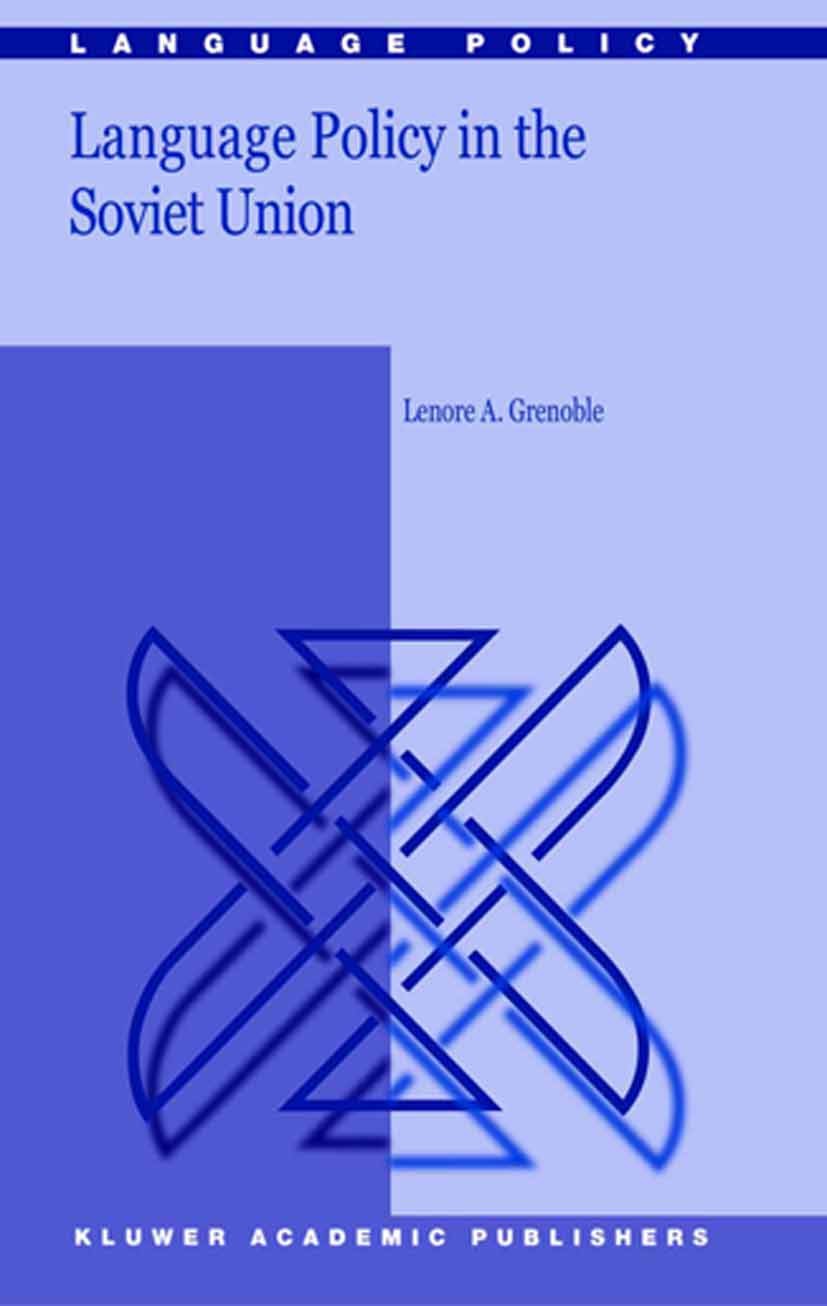| 书目名称 | Language Policy in the Soviet Union | | 编辑 | Lenore A. Grenoble | | 视频video | http://file.papertrans.cn/581/580971/580971.mp4 | | 概述 | Includes supplementary material: | | 丛书名称 | Language Policy | | 图书封面 |  | | 描述 | Soviet language policy provides rich material for the study of the impact of policy on language use. Moreover, it offers a unique vantage point on the tie between language and culture. While linguists and ethnographers grapple with defining the relationship of language to culture, or of language and culture to identity, the Soviets knew that language is an integral and inalienable part of culture. The former Soviet Union provides an ideal case study for examining these relationships, in that it had one of the most deliberate language policies of any nation state. This is not to say that it was constant or well-conceived; in fact it was marked by contradictions, illogical decisions, and inconsistencies. Yet it represented a conscious effort on the part of the Communist leadership to shape both ethnic identity and national consciousness through language. As a totalitarian state, the USSR represents a country where language policy, however radical, could be implemented at the will of thegovernment. Furthermore, measures (such as forced migrations) were undertaken that resulted in changing population demographics, having a direct impact on what is a central issue here: the very nature | | 出版日期 | Book 2003 | | 关键词 | Europe; Language Development; education; language policy; literacy; russian | | 版次 | 1 | | doi | https://doi.org/10.1007/0-306-48083-2 | | isbn_softcover | 978-90-481-6293-2 | | isbn_ebook | 978-0-306-48083-6Series ISSN 1571-5361 Series E-ISSN 2452-1027 | | issn_series | 1571-5361 | | copyright | Springer Science+Business Media Dordrecht 2003 |
The information of publication is updating

|
|
 |Archiver|手机版|小黑屋|
派博传思国际
( 京公网安备110108008328)
GMT+8, 2026-2-8 21:08
|Archiver|手机版|小黑屋|
派博传思国际
( 京公网安备110108008328)
GMT+8, 2026-2-8 21:08


